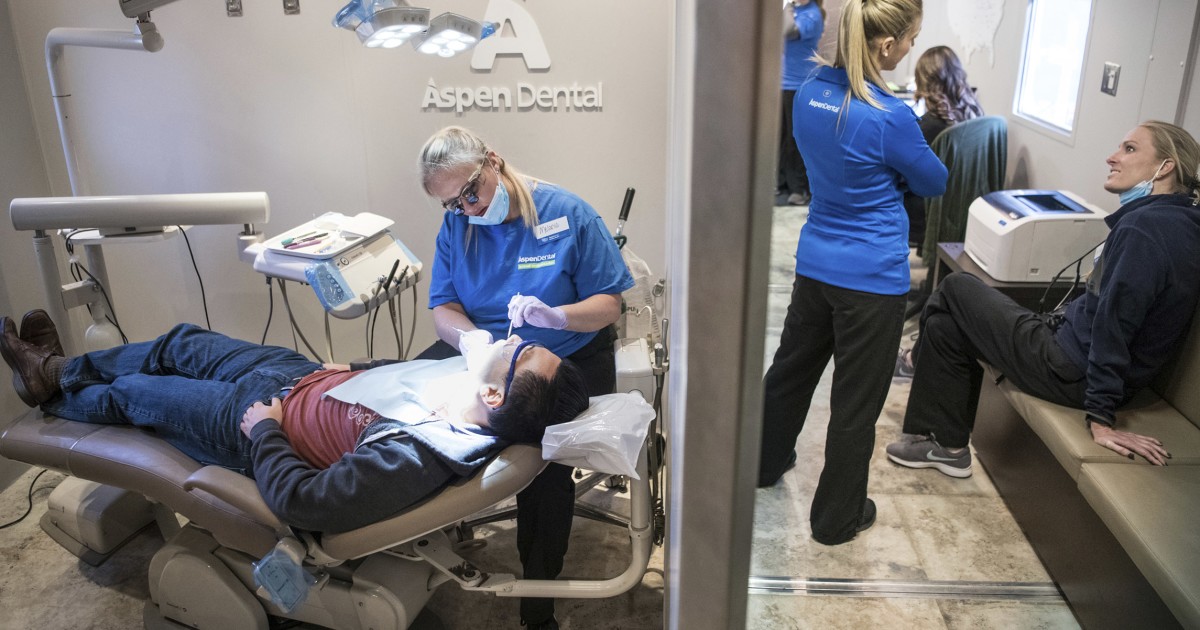
Few things are more concerning than kids without access to quality medical care. That’s especially true when the kids in question have special needs. Yet at this very moment, tens of thousands of special-needs kids struggle to find basic dental care. It’s a quiet crisis in American healthcare.
Private organizations are starting to realize this and they’re trying to fix it. Congress is just now starting to take notice, and it may soon take action as well. But the question is: Will lawmakers avoid the usual heavy-handed, one-size-fits-all policies — the “solutions” that usually make health-care problems worse?
There’s no doubt the need is real. What I’ve seen as a dentist is heartbreaking and unfortunately all too common: Many distraught, stressed, and despondent parents and kids alike finding themselves in a neverending cycle to access and afford good dental care. Special needs kids require more special attention: attention they don’t often get. Dental care for special-needs kids is simply more time-consuming (and costly) than it is for other patients.
For example: Whereas a regular dental patient can be in and out in a matter of minutes or hours, special-needs kids require significantly more time, training, and compassion. Even routine dental care can stretch for the better part of a day, if not multiple days. It also usually requires general anesthesia, which means putting children into an induced sleep for hours at a time. Regardless of the treatment required, it almost always involves more minutes, more money, and more manpower.
To complicate matters, government rules often restrain dentists from offering personalized private office care, even if only on a small scale. Government agencies and programs also typically don’t reimburse enough to cover costs. Even for those families that are absolutely determined to get their kids the care they need, the barriers they face are high — identifying dentists, long waits, and numerous trips.
Across the country, university hospitals often have dental wait lists that stretch to a year or even a year-and-a-half for special needs kids. The wait-time for an operating room in New York City is 6 to 12 months. During that time, dental issues can go from bad to worse, requiring even more expensive treatment.
States and the federal government have yet to devote real attention to this quiet crisis. Yet not only do lawmakers need to catch on; they need to catch up to the private sector. Manufacturers are developing and improving a variety of tools that will allow dentists to help families limit travel difficulties, lost work hours, expenses, and discomfort for kids.
New York University’s College of Dentistry, where I have lectured, also recently opened a dedicated treatment center for people with special needs in the heart of Manhattan. It’s a massive, state-of-the-art facility designed specifically to serve this underserved community. Dr. Ronald Kosinski, Director of NYU’s Oral Health Center for People With Disabilities, told me his school is “implementing a paradigm shift in the way we treat the disabled community” by “training students to open up their arms to these patients and say, ‘yes, I can help you’ instead of ‘no, I can’t.’”
The question now is whether Congress will finally adopt the same can-do approach.
This isn’t something lawmakers are used to talking or even thinking about. Yet this is something that affects the health and well-being of tens of thousands of kids from coast to coast. Politicians on both sides of the aisle constantly remind us of how kids need care and how they must be covered. Yet, as we have seen with past federal reforms, simple coverage does not equal quality care, and good intentions do not equal good access. Smart healthcare reforms actually reach the people they’re meant to help.
Government has already taken a primary role in the decisions and funding of healthcare for this community. That involvement isn’t going anywhere, but it does need to be more tailored and direct. Lawmakers must find a way to reduce barriers so that the private sector (including universities, businesses, and dentists) can safely, affordably, and compassionately give kids the dental care they deserve. Over-regulation won’t solve anything. Nor will undercutting the role that private actors play.
The sooner lawmakers get to work, the sooner they can end this quiet crisis. The sooner they’ll help give special needs kids the support and care they deserve.
Dr. Joel Strom, DDS, MS, is a fellow at the Unruh Institute of Politics at the University of Southern California and a general dentist in Los Angeles, California.
